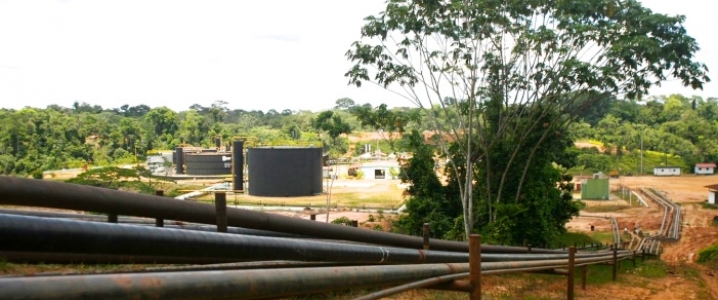Peru Oil Pipeline Resumes Operation

Petroperu announced the restart of a crude oil pipeline that has been shut for a year for urgent repairs after a series of leaks. The 687-mile piece of infrastructure, which carries crude from Peru’s oilfields in the Amazon to the Pacific Coast, carried a modest 15,000 bpd of crude per day before the shutdown—but even this amount has proved a drag on Peru’s economy while the pipeline was being repaired.
Initially, the restart of the pipeline was planned for early this year, but the repairs apparently appeared to be more extensive than originally estimated. The pipeline is 40 years old, but Petroperu blamed vandalism for the spills that in 2016 alone reached 7,000 barrels.
Vandalism was one reason for the spills, according to the country’s environmental regulator, OEFA, but another reason was poor maintenance, which sparked massive protests from communities living in the Amazon jungle, which the pipeline crosses for most of its course to the Pacific.
The regulator fined Petroperu US$3.5 million for the latter, saying the company was guilty of “repeated and systematic failure of its environmental obligations.” In an interview with Reuters, Petroperu’s president, Augusto Baertl, said that making the company more environmentally responsible was a top priority, but added that it had a problem in this respect.
The restart of the pipeline comes at exactly the right time, as crude oil prices rally to multi-month highs. Peru is a modest oil producer, with daily output at 38,290 bpd as of end-2016, but it has the third-largest gas reserves in South America, at 426.1 billion cu m as of 2014. Oil reserves are estimated at 170 million tons.
Earlier this year, none other than China’s top oil company, CNPC, said it was willing to pour US$2 billion into the development of an oil block in the Andean nation. It may face some problems, however, from the Amazonian communities that earlier this month shut down 50 oil wells in protest against government negotiations with Canada-based Frontera for further oil development in the region without prior consultation with the communities as per a 2011 law.
Related News
Related News

- Trump Aims to Revive 1,200-Mile Keystone XL Pipeline Despite Major Challenges
- Valero Considers All Options, Including Sale, for California Refineries Amid Regulatory Pressure
- ConocoPhillips Eyes Sale of $1 Billion Permian Assets Amid Marathon Acquisition
- ONEOK Agrees to Sell Interstate Gas Pipelines to DT Midstream for $1.2 Billion
- Energy Transfer Reaches FID on $2.7 Billion, 2.2 Bcf/d Permian Pipeline
- U.S. LNG Export Growth Faces Uncertainty as Trump’s Tariff Proposal Looms, Analysts Say
- Tullow Oil on Track to Deliver $600 Million Free Cash Flow Over Next 2 Years
- Energy Transfer Reaches FID on $2.7 Billion, 2.2 Bcf/d Permian Pipeline
- GOP Lawmakers Slam New York for Blocking $500 Million Pipeline Project
- Texas Oil Company Challenges $250 Million Insurance Collateral Demand for Pipeline, Offshore Operations




Comments